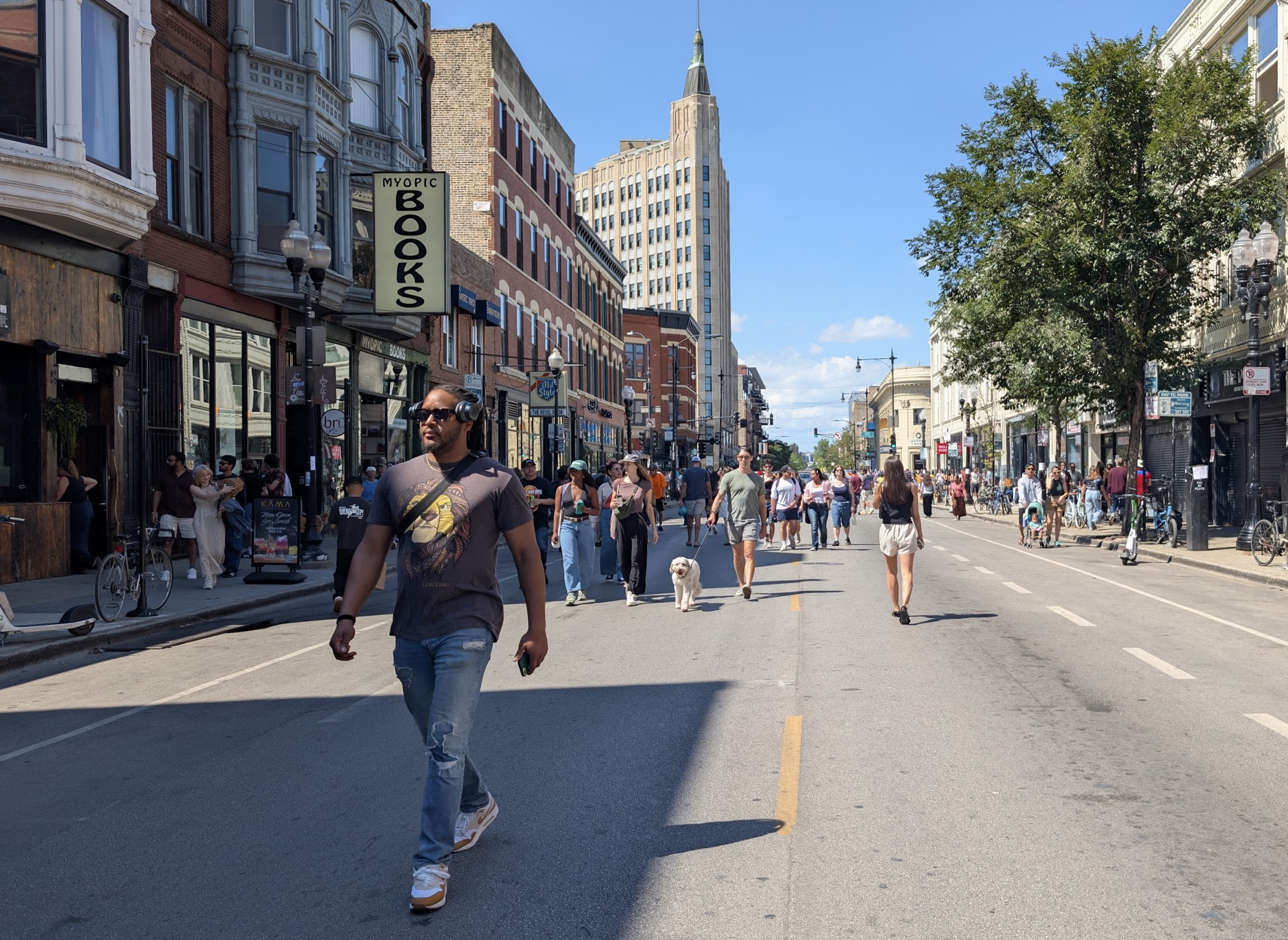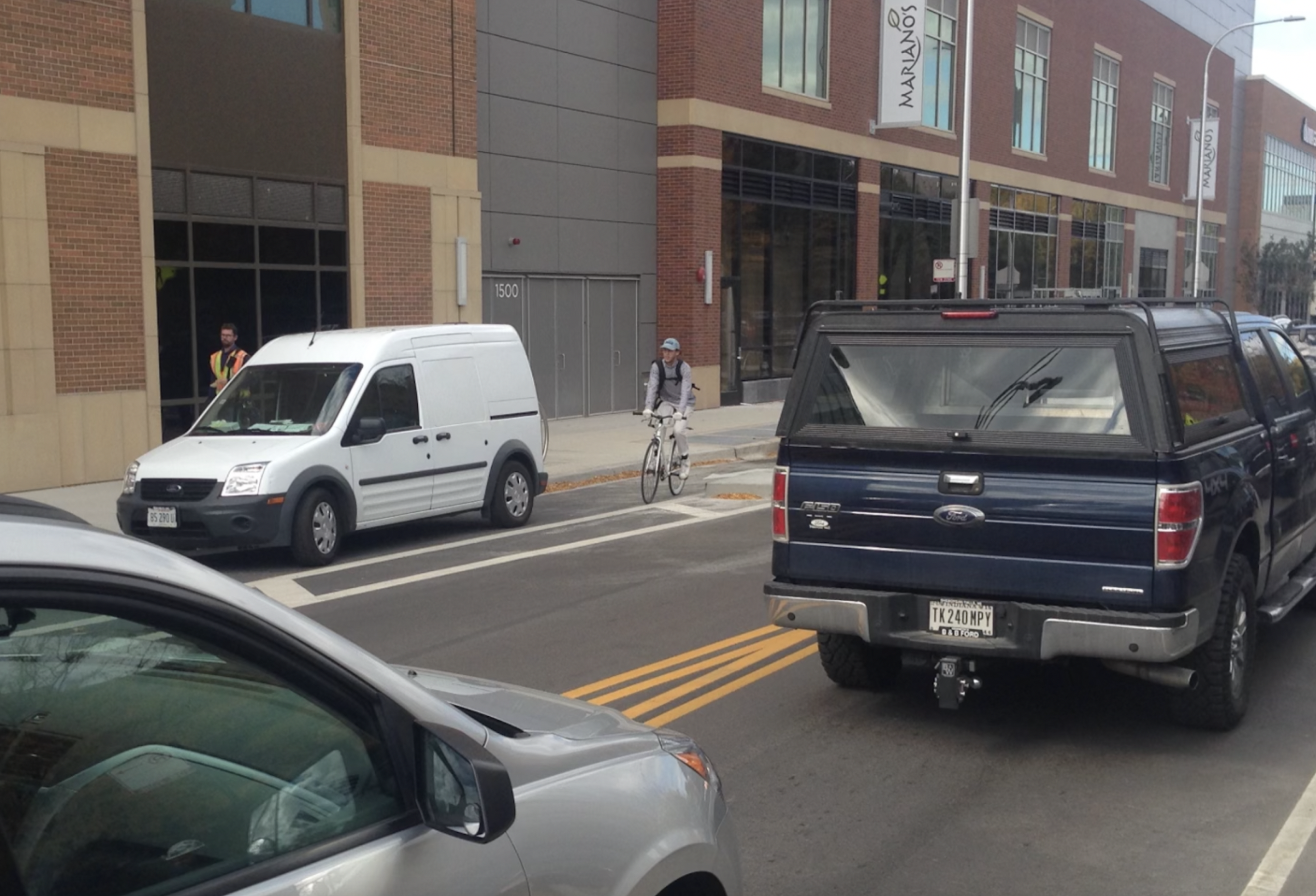
Patrick Kennedy at Dallas Magazine's Street Smart blog says that when parking gets expensive, the conventional wisdom he hears is that more parking should be built. But what high parking prices really signify, he writes, is simply a strong concentration of businesses and/or housing -- the parking isn't even necessary.
To illustrate the point, Kennedy mashed up parking costs compiled by real estate services firm Colliers International with City Observatory's new "Storefront Index" that maps customer-serving businesses in cities. He explains:
The high cost of parking, to paraphrase the godfather, suggests (at least to the conventional wisdom) that there “isn’t enough parking.” That is incorrect. There is just the right amount of parking, give or take. That parking is substituted by nearby housing and jobs. People are nearby and therefore, those people create demand for services. Thus, storefronts people can walk to.
As you can see, retail density as represented by storefront density rises precipitously as parking costs rise. The best parking spot in service of retail is a nearby bedroom. Ideally, many of them. Like, thousands of them within walking distance, which ensures a measure of stability to those businesses, repeat business, and some protection against cannibalization from the ‘new’...
Space for parking is unproductive real estate. It is space wasted in service of other productive real estate. As it serves other real estate land uses, the conventional wisdom always suggests, "give us parking, so we can get X, Y, or Z land use." However, that provision of parking is often at the expense of those same X, Y, and Z land uses as well as the stability and predictability of success for those land uses.
Therefore, if the productive real estate can be productive without the parking, having the parking is inherently inefficient and the goal should be to maximize efficiency and productivity of real estate. I’m not saying have zero parking. Instead, what any CBD should be incorporating into their revitalization strategy is to systematically reduce the ratio of parking to productive land uses like retail, jobs, and housing.
Elsewhere on the Network today: Streets.mn says a statewide sales tax for transit in Minnesota deserves serious consideration. And Bike Portland reports the city is planning a new downtown protected bike lane, starting this summer.




